|
As the most popular musical instruments available today, people often ask “What is harder to learn, guitar or piano?” Well, this post is designed to reflect the main difficulty levels of both instruments. A proper understanding of how these instruments are played will give you the right answer to the question.
What you should know about the piano The piano is generally referred to as a musical instrument with keyboard. This is one instrument that comes handy with a wide range of musical theory. With the piano, anyone can be able to play chords effectively without having to erroneously mute another key. This is mainly due to its simple layout that requires the use of fingers to hit a set of keys that are seemingly far from each other. Playing the piano involves lots of muscle stretching which calls for an easy hand movement. This is why it is generally believed that learning the piano opens the way to easily learn other instruments (including the guitar) as you learn to use the hands independently. What you should know about the guitar The guitar is a stringed instrument that requires the pressing down of strings to create sounds. Hand placement and finger positioning matter much when playing the guitar. As a matter of fact, players must avoid creating muddied sounds by ensuring not to lean into or brush against other strings. Also, you must avoid getting sounds thrown by ensuring that your finger is not well placed on the fret – not too high and not too low. What makes one instrument a better choice? Again the question – “What is harder to learn, guitar or piano?” can be quite tricky as both instruments are different in all aspects. However, due to the way the keys are arranged on the keyboard. It is much easier to perform hand movements to reach difficult chords on the piano than on the guitar. This is because playing the guitar involves more tricky and finicky techniques than the keyboard. But when it comes to creating stunts, such as slides and vibrato, and hitting chords, the guitar features more easy techniques than the keyboard. In a bid to effectively build up callouses on the finger, players need to endure soreness while playing which happens to be more tensed on the keyboard than on the guitar. But when it comes to accessibility, it is easier to handle a guitar than a piano (regardless of how portable it may be) because guitars are meant to be carried while playing. Nevertheless, much care is required to handle the guitar which includes regular cleaning, re-tuning, strings replacement, etc. Anyone learning to play the guitar must be able to take good care of its components which can be very fragile. As for sound, there is no clear winner as to which instrument does better. Both instruments are greatly versatile when it comes to making sounds and are fun to play. However, it is more comfortable to play the piano than the keyboard. This is a question that has been asked countless times over the years. The short answer is that I believe the piano comes easier to small children and adults who cannot dedicate all of their time to practicing.
Aside from these concerns, there are numerous pros and cons to learning each instrument first. The choice boils down to the student's willingness to practice. Piano vs Guitar For beginners, learning and memorizing piano notes is easier because of the repeating pattern across all keys. To make things even simpler, many piano teachers start by teaching adults the white keys (there are 7 in total), or while kids learn the black keys (total of 5). After they have been mastered, the remaining notes come into play. Beginners can also understand basic musical patterns on a piano. If the notes move downwards while reading sheet music, the student knows they’re moving to the left along their piano keys. Intervals, also known as the measurable distance between each note, are easily identified. Pattern based songs can be learned within the first month of lessons. Note patterns tend to be more complex for beginner guitar players. Each string comes with its own arrangement of notes. This makes it far more difficult to learn which string will affect the pitch, allowing it to go higher or lower. Unlike pianos, guitars must be tuned before playing. This is another area of study that must be conquered quickly. Otherwise, a student is unable to use their guitar without seeking assistance from their guitar teacher. Instant Gratification Piano lessons offer instant gratification. Playing a note is easier. Sit up straight, lift the wrists upwards, gently curl the fingers and go from there. While the piano will become trickier later on once rhythmically independent notes come into play, the student will learn more about the effect of different fingers and hands. With guitar lessons, more coordination is involved during the early stages. Students must learn to to fret and pluck strings simultaneously without dampening the sound, whereas new piano students do not use both hands right away. For piano students, learning curves slow once necessary coordination develops. Using both hands on the keys and playing different melodies and chords is not as easy as it looks. Playing guitar becomes easier over time. Guitar students can grasp chords and learn how to play songs at a faster pace than many piano students. This point is debatable, as each student learns at their own pace. The student's own level of enthusiasm will also determine their learning speeds. Learning to Read Music Piano and guitar lessons provide better learning opportunities than singing lessons, as these teachers will offer a formal music theory foundation. Students are taught how to read music. Conversely, a guitar teacher may start with beginners' books before moving into teaching by example and by ear. Classical guitar lessons are the exception here. Students must pass RCM exams after learning through graded lesson books. Those learning other styles of guitar playing can ask a teacher to include note reading and music theory in their lessons. The best instructors are always happy to oblige. It’s All About Preference The piano is an excellent choice for children. Instant gratification is offered during the first few lessons, there is less music theory to learn and the student is given a foundation from which to work with later. Deciding between the piano and guitar is all a matter of preference. Do you require instant gratification from piano learning with every key laid out like a musical map? Or would you like to work a bit harder to memorize a fret board and become a master of the electric guitar? Both instruments are able to provide a crash course on essential music fundamentals. Other instruments simply cannot provide the same benefits. They are both great beginner instruments that provide their own differing paths to the same objective: to enjoy playing music and maybe even become a professional musician over the long haul. Do you wish to learn a new skill like how to play the piano? While doing your research, some of the questions that are likely to cross your mind may include; is it difficult to learn piano? How hard can it get? Finding answers to these questions and more won’t be as easy as you may think, considering the fact that several factors are usually at play in determining how easy or otherwise your mastery of the instrument can be. There are a couple of factors which will likely make it quite difficult for you to learn the piano. It is advisable that you try as much as possible to avoid them all. Below are five of these factors;
1. Learning to play the piano without the help of a teacher: One of the surefire ways to learn to play piano with ease and progress quite quickly is to learn with the assistance of a piano teacher. Perhaps you do not fancy private lessons, then you can take online classes at TakeLessons Live. They have classes which are apt for beginners and can be taken from the comfort of your home. You would also have access to as many classes as you like. Some of the ways via which a piano teacher makes the learning process easier include; a. Establishing good habits: An integral aspect of the successful mastery of the piano is learning the correct posture, finger movement, and hand position. Although learning piano with the aid of a teacher doesn’t mean you will end up being a concert pianist, but it would certainly prevent you from picking up some terrible habits which may become too difficult to break in the future. b. Making stylistic corrections: You would only get the proper music sounds when you play your piano at the appropriate tempo, volume, and rhythm. By incorporating the right fingering and hand movement, you will also find it easier to learn the instrument. It can be quite difficult, if not impossible, to identify your mistakes without the help of a piano teacher to point them out for you. A piano teacher will offer you one-on-one feedback, which is impossible to achieve when you are using just a textbook. This is the key to moving to the next level. c. Providing teaching materials: Not everyone is astute at reading music or understanding other parts of music theory. If you belong to this group then it is very unlikely that you would assign homework for yourself. Alternatively, a private teacher can identify areas where you appear to be struggling and recommend that you take extra classes so you can improve. d. Holding you accountable: Most of us make New Year resolutions at the beginning of the year, only to break them only after a few weeks. You are more likely to achieve your goals if there is someone else to hold you accountable. 2. Being unwilling to practice: Your ease of learning piano is highly dependent on how much you practice between your weekly lessons. If all you do is practice twice between your weekly lessons, then you are not likely to progress at the pace you may have in mind. It is expected that you practice for at least 30minutes every day, if you wish to see improvement from week to week. 3. Lack of prior music background: The fact you don’t have any musical background doesn’t mean you can’t learn and master the piano, but you should expect it to be a little difficult and longer at the start. You must be patient with yourself and remain focused. 4. Learning on a cheap keyboard: Although this may sound unreal, but it is as true as the previous points mentioned. You will only limit yourself and make the learning process more difficult if you don’t use a proper 88-key piano. You don’t need an extra element to frustrate your learning attempt. For the most authentic playing experience, the best option is an upright piano. 5. Too high or too low expectation: It is important you begin your piano lessons with moderate expectations. Don’t assume you will be playing Rachmaninoff in just a few days of your lessons. The idea is to get the basics first and build a strong foundation. You are expected to learn basic melodies and one-handed songs before you move to the more complicated works. Considering the above listed factors, the benefit of taking private piano lessons far outweighs learning on your own. Virtually every factor that make learning the piano difficult can be traced back to whether you have a private teacher by your side. Therefore, the first step towards achieving mastery with a new musical instrument is finding a qualified teacher. In the 1940’s clarinet was one of the most popular of all jazz instruments. Think of 3 of some of the biggest names in popular music of that era and you’ll come up with “Benny Goodman” (who had many number one hits), “Artie Shaw” (who also had number one hits), and many others including the great Woody Herman, (who also had many hits). All of these were great jazz clarinetists and leaders. The clarinet was also a huge part of Glenn Miller Big Band sound (who was a trombone leader, and according to the “Glenn Miller Story” said the clarinet helped him find his unique sound).
At that same time in the early 40’s, the saxophone was gaining in popularity. Don’t forget that the big band was comprised of 5 saxophones, 4 trombones, and 4 trumpets and rhythm section. The saxophone could more easily compete with the loud brass and add the flavor and energy right for the dance bands of that era. Many saxophonists (who also doubled on clarinet) found that the clarinet had a very popular period in the early 40’s but by the end of the 40’s, with the advent of Bebop, the clarinet started to decline in popularity, and being thought of as more of a swing instrument which began to take on the impression of being passe to the hip new bebop players of the late 40’s and early 50’s. And by the mid 50’s the Hard Bop era which was influenced by rhythm & blues brought the saxophone to even higher popularity. The clarinet never recovered it’s place in jazz. The saxophone had many decades of some of the most influential jazz stars of the late 40’s, 50’s right through today’s current jazz music, with Coleman Hawkins, Lester Young, Charlie Parker, Dexter Gordon, Stan Getz, Sonny Rollins, John Coltrane, Michael Brecker to name but a few of the greatest jazz musicians that shaped jazz. With the exception of a few great jazz clarinetists like Buddy DeFranco and Eddie Daniels who always sounded modern and hip, very few other clarinetists ever gained enough popularity to inspire new young clarinetists to play the instrument. And one final thought that may have led to the unfavorable direction of the clarinet was the simple fact that it’s a much more difficult instrument to play than the saxophone. I don’t think there would be much argument among woodwind doublers (who play both clarinet and saxophone) that the saxophone is a much more logically laid out instrument and much more free blowing than the clarinet. That fact in itself could be the real reason that the saxophone replaced the clarinet in jazz. The obvious, but essential answer is to call a music school in your area and get a jazz saxophone instructor if your family can afford one. Even a few lessons from a good jazz saxophone teacher who is versed in the various styles you will encounter, will be able to help you improve your reading ability as well as prepare you for playing jazz.
With or without a sax teacher you should buy the Lennie Niehaus Book, “Basic Jazz Conception” It’s a fantastic book to help young saxophone players. I have used it for 30 years with my students and there’s never been a better book to teach jazz conception. You will learn how to play swing music and basic jazz articulations as well as the basic rhythms and style of playing jazz saxophone. And best of all, it now comes with a professional saxophone player playing all of the jazz etudes so you can hear how it’s supposed to sound. Basic Jazz Conception for Saxophone, Vol 2: 12 Jazz Exercises; 10 Jazz Tunes (w/CD): Lennie Niehaus: 9781934638019: Amazon.com: Books You should do your best to take you sheet music and practice every day at home. Sometimes you can find recorded examples of some of the music you will be playing and listening to a professional player will help you understand how it should sound, whether rhythmically or tonally or stylistically. Listening to a lot of tenor saxophone players is a great way to improve your playing. These days, there are more books and theory about how to play and improvise jazz, but the way many jazz players learned in the past is through just listening to jazz and imitating what they hear. That is a process called transcribing in the music world. You can do it if you start with something simple like an easy melody you like. Transcribe and write it out the best you can or just do it all from memory. That’s a sure way to improve your playing and prepare you for improvising, which as a tenor saxophone player in a jazz band you will be forced to do at one point or another. What ever work you can do in that direction will definitely help you get prepared for improvising. Jazz improvisation, is all about using your ear. Theory helps too but you can do a lot on your own just transcribing and imitating great players! Good Luck! 5 Reasons To Take The Best Piano Lessons In Burbank
Piano lessons for just any child. In many cases you’ve heard people say how they wished they had taken some piano lessons, or how they wish they had not quit their lessons. Unfortunately for most of these people the realization comes too late, long after the opportunity has gone past. If you are considering signing up you kids for piano lesson, it certainly is something worth going for. Piano lessons pose many cognitive benefits for the little ones, even if the opportunity is short-lived. 1.The Best Piano Lessons Can Teach Your Child Discipline, Hard Work, Self Esteem and Concentration Practicing the piano everyday is no easy task. It requires dedication, discipline, focus and patience. Those who can persevere during trying times are more than likely to succeed when trying new things. And as parents, the more we give our children opportunities to challenge themselves, the better the chances of them pushing themselves harder in other aspects of their lives. 2.Piano Lessons Improve Speech, Reading, Listening and Creativity The list goes on, the amount of cognitive benefits from piano lessons are pretty much endless. There’s so much that music does for the brain, in fact so much that it can’t all be explained in this article. Check out the benefits of music lessons at http://www.rcmusic.ca/sites/default/files/files/RCM_MusicEducationBenefits.pdf and you’ll discover yourself. 3.Children Enhance Their Ability to Sense Feelings, Emotions and Moods Certain or even subtle changes in our voice can indicate the kind of emotions or moods we are undergoing. Likewise, there are certain changes in music that enable us to sense feelings and emotions. Different tones in music can help children understand more about feelings, empathy, remorse and more. 4.Performing Publicly Boosts Confidence Standing in front of a crowd for the first time is no easy feat. But allowing your fingers to play sweet melodies will certainly give you confidence. The same applies to children, and that will stay with them throughout the course of their lives. 5.A Great Skill to Have Besides the cognitive benefits brought about from piano lessons, playing the piano is actually an amazing skill, something that brings about an awesome feeling. Being able to read notes and play beautiful melodies in front of wonderful audience is priceless. How to Find A Piano Lessons Teacher While there are many piano teachers out there, it takes some dedication and thorough research to find the best piano lessons teacher in Burbank. Such a teacher will help your child in all of the above mentioned benefits and more. You can also check online at http://bit.ly/2bsa5Vs, a directory to help you find the best piano lessons teacher near you. Ultimately, as a parent you want what’s best for your child, and music can play a vital role in your child’s upbringing and further more into their future. Right now in 2019 the piano/keyboard is the most requested instrument to play by young musicians at least in the U.S. It’s the number one instrument in most music schools with the guitar a close second. It’s probably the most versatile of all musical instruments and is used in every style of music. It can be played or accompany other instruments and is often played as a solo instrument. It also covers a range from the lowest of bass instruments to the highest piccolo sounds.
In addition, many musicians who’s main instrument is a woodwind, string, brass or percussion learn the piano because it is a very visual instrument that makes it easy to learn theory and work out compositions. Many composers think of it as “having the orchestra in their hands,” therefore most of the great composers for hundreds of years were pianists and used the piano to compose and that remains the same currently in contemporary music. The electric keyboard makes it possible for more parents to be able to afford to buy a piano because electric keyboard companies are able to make them for as low as 50.00 and even good 88 key electric keyboards with weighted keys are less than 500.00. |
Archives
July 2024
Categories
All
|
|
Music Lessons Available on All Instruments:
Piano Lessons
Guitar Lessons Voice Lessons Drum Lessons Violin Lessons Cello Lessons Saxophone Lessons Jazz Improvisation Lessons Flute Lessons Clarinet Lessons Singing Lessons Acoustic & Elec Bass Songwriting & Production |
Contact Us Now
|
Website by Never Alone Business Services
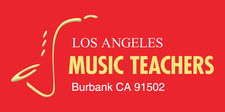
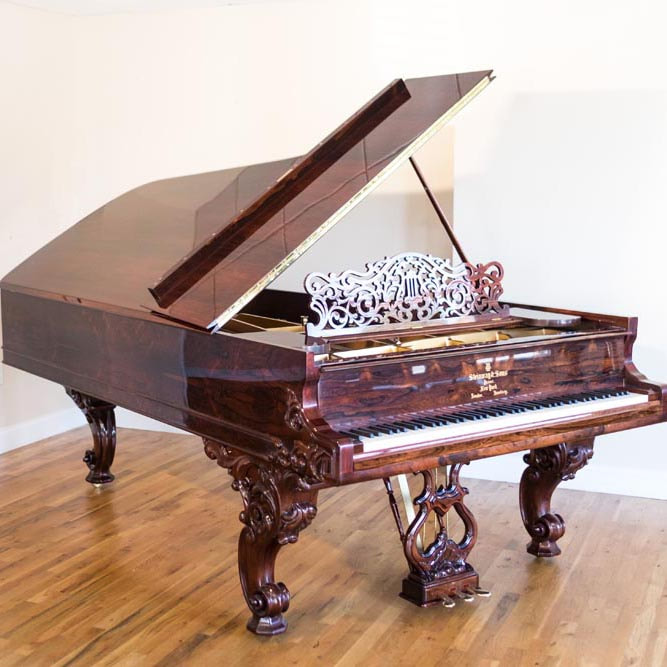
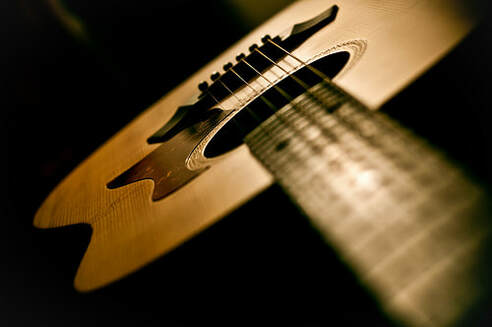
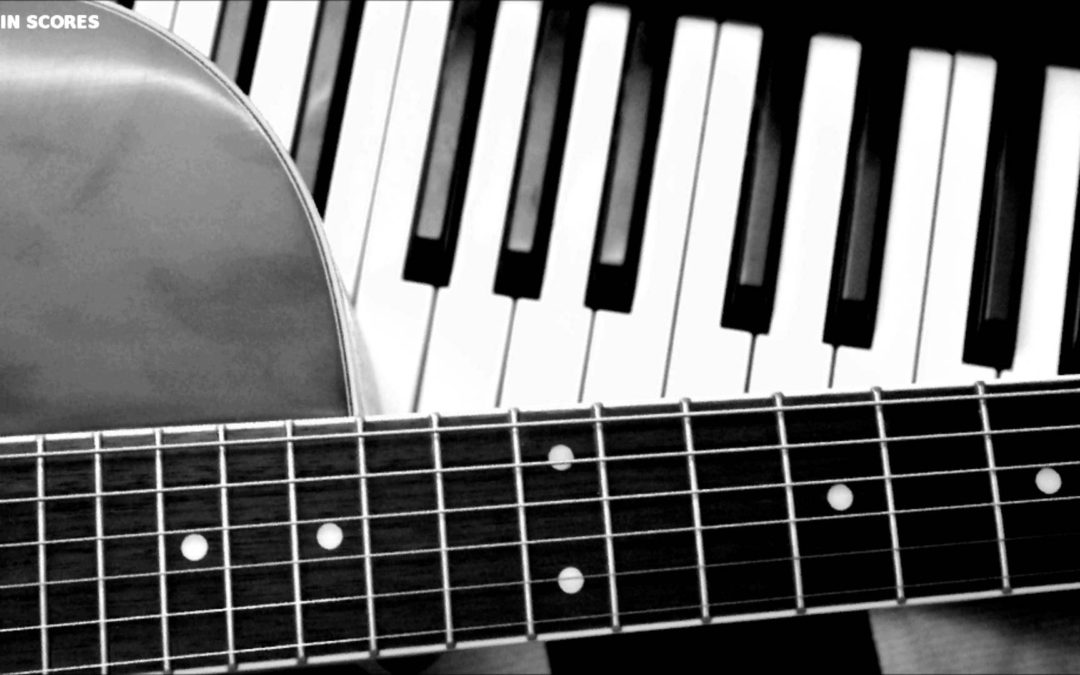
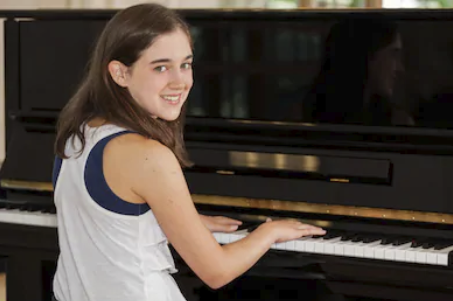
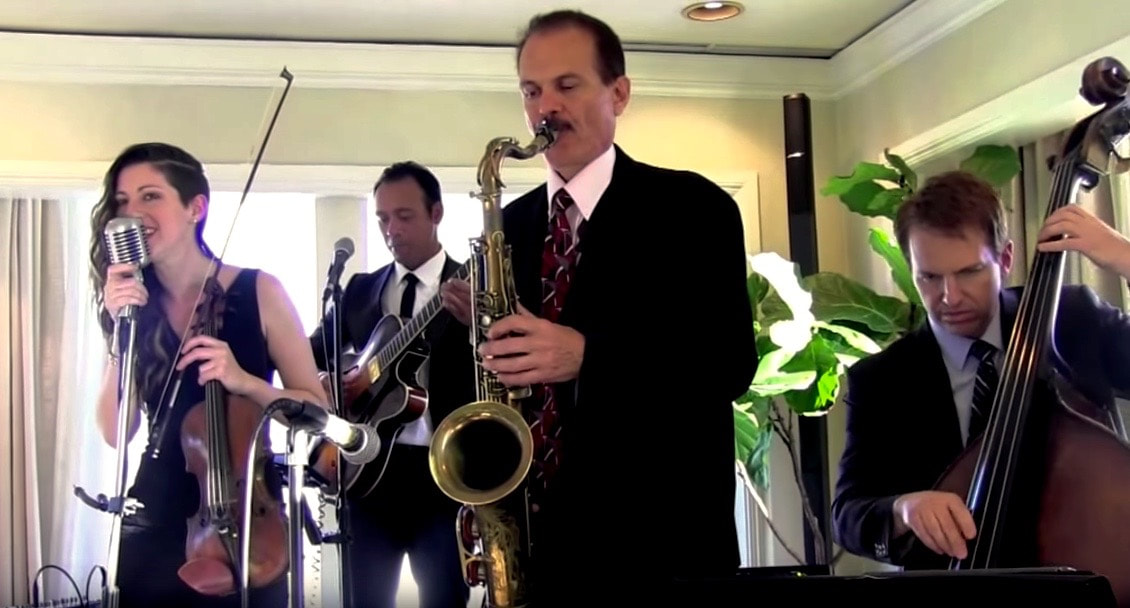
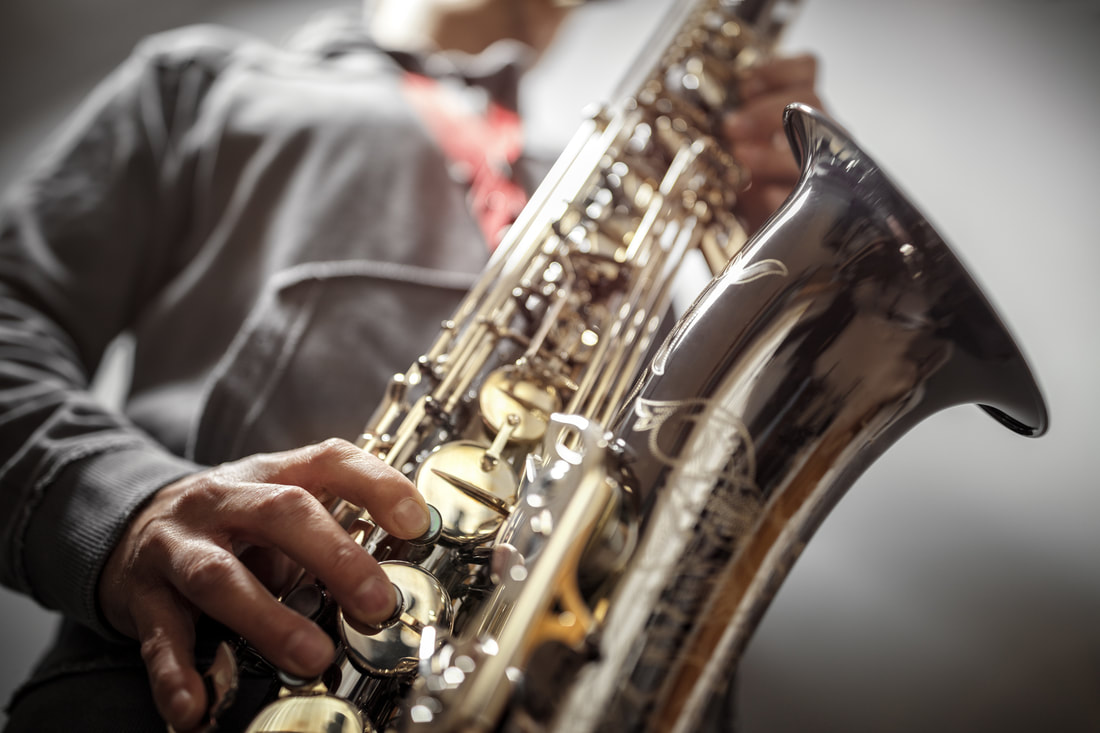
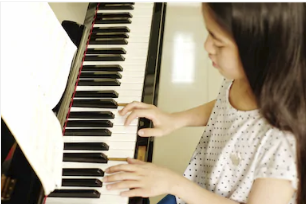

 RSS Feed
RSS Feed



